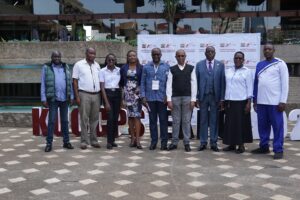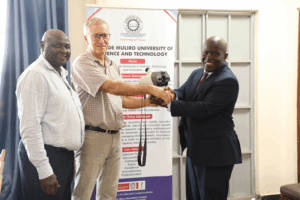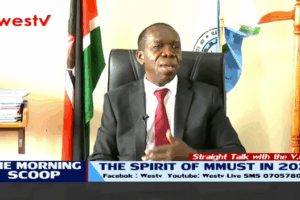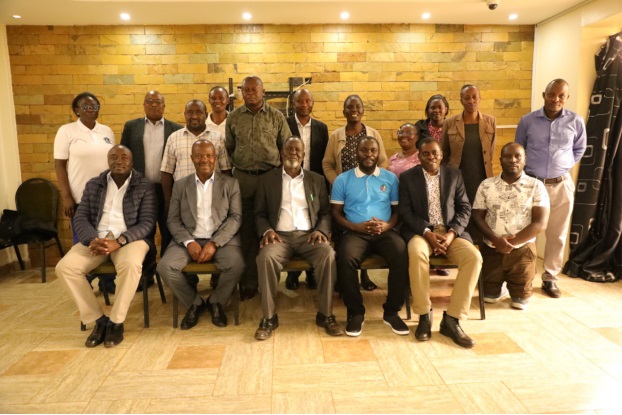
MMUST Holds Two-Day Disability Mainstreaming Workshop in Busia County
Masinde Muliro University of Science and Technology (MMUST) Aids Control, Gender and Disability Mainstreaming Committee held a successful two-day capacity building workshop at the Great Chef Hotel in Busia County. The workshop, held on Thursday and Friday 19th and 20th June 2025 respectively, aimed at strengthening disability inclusion initiatives within the University.
The workshop, which brought together committee members and stakeholders, was officially opened by Deputy Vice-Chancellor Academic and Students Affairs (DVC ASA) Prof. Hussein Golicha, who represented the Vice Chancellor at the event.
Prof. Golicha noted that the training workshop marked a significant step forward in MMUST’s commitment to ensuring that persons with disabilities are not only included but actively participate in all aspects of university life and broader community development. He said that this workshop represents MMUST’s dedication to breaking down barriers and building bridges of understanding and accessibility.
“The knowledge and skills you will acquire over these two days will be instrumental in transforming how we approach disability issues in our institutions and communities. We must move beyond mere compliance to genuine inclusion, ensuring that our policies, practices, and attitudes reflect our commitment to equal opportunities for all. I encourage you to engage actively, share your experiences, and learn from one another. Together, we can create lasting change that will benefit not only persons with disabilities but our entire society,” he said.
The Director, MMUST Directorate of Aids Control, Gender and Disability Mainstreaming in his welcoming remarks acknowledged that true development cannot be achieved when any member of our community is left behind. He noted that disability mainstreaming is not merely a policy requirement—it is a moral imperative that reflects our commitment to human dignity and equal opportunities for all. “Through this workshop, we aim to build practical skills and foster deeper understanding of how to integrate disability considerations into all aspects of our programs and services. I encourage each of you to engage actively, share your experiences, and challenge existing paradigms,” he said.
During the comprehensive training sessions, participants engaged with several critical topics designed to enhance their understanding and effectiveness in disability mainstreaming. Key areas covered included an overview of the MMUST AIDS Control, Gender and Disability Mainstreaming Unit, providing attendees with insights into the university’s integrated approach to addressing these interconnected issues.
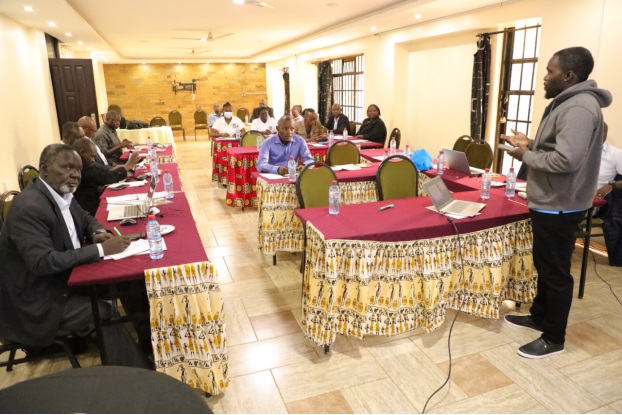
Mr. Edwin Musungu making his presentation during the workshop
The workshop also focused on clarifying the Terms of Reference and specific roles of Disability Mainstreaming Committee members, ensuring all participants understood their responsibilities and mandate within the university structure. Committee members received a comprehensive outline on both the achievements and ongoing challenges faced by the Disability Mainstreaming Committee at MMUST, fostering a candid discussion about progress made and areas requiring improvement.
A significant portion of the training was dedicated to exploring the role of the National Council for Persons with Disability in disability mainstreaming efforts, spearheaded by Mr. Edwin Musungu, the County Director, Disability Services under the National Council for Persons with Disabilities, in Nairobi Cointy. Mr. Musungu highlighted the importance of collaboration between institutional and national-level initiatives to create inclusive environments for persons with disabilities.
This workshop was also attended by the Registrar Planning Research and Innovation Dr. Collins Matemba who reiterated that MMUST firmly believe that inclusive education and accessibility are not merely policy requirements, but fundamental human rights that must be embedded in every aspect of our institutional framework. He noted that this workshop represents the university’s commitment to ensuring that persons with disabilities have equal opportunities to participate fully in academic, research, and innovation activities.
At the closing ceremony of the training workshop, Prof. Edwin Wamukoya, who was stepping in for the Vice Chancellor extend gratitude to the participants for their active participation in the transformative two-day disability mainstreaming workshop. He noted that the knowledge and strategies shared over the two days represent more than just academic discourse – they embody MMUST’s collective commitment to creating an inclusive society where every individual, regardless of their abilities, can fully participate and contribute to community development.
“As we conclude this workshop, I challenge each of you to become champions of disability inclusion in your respective organizations and communities. The practical tools and frameworks we’ve explored are only as effective as our determination to implement them. MMUST remains committed to supporting evidence-based approaches to disability mainstreaming, and we look forward to continued collaboration with all stakeholders in the country and beyond. Let us leave here with renewed purpose to build a more inclusive Kenya where disability is recognized as part of human diversity, not a limitation,” he said.
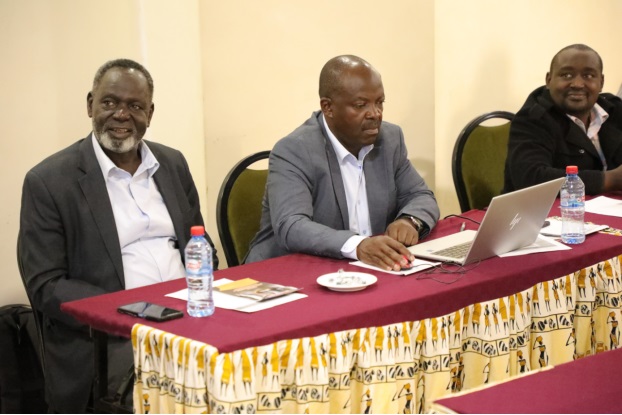
A section of participants following presentations
The workshop represents MMUST’s continued commitment to creating an inclusive academic environment and ensuring that disability considerations are integrated across all university operations and programs. The training enhanced the committee’s capacity to advocate for and implement disability-friendly policies and practices throughout the institution.
Other member of this committee present during the workshop include; Prof. Danstone Lilechi, Prof. Francis Orata, Dr. Reuben Ruto, Mr. Vincent Chibini,Mr. Daniel Korir, Ms. Lilian Kundu, Ms. Elizabeth Simiyu, Mr. Bonface Manoah,Ms. Selina Lusiche, Mr. James Owich, Ms. Jackline Olwenyi, Mr. Lawrence Oluchiri
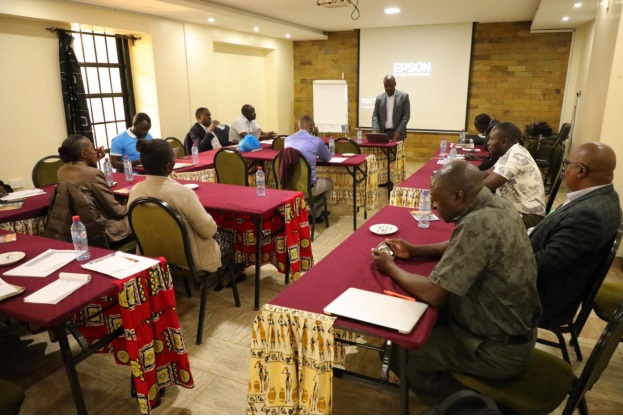
The Registrar Planning Research and Innovation Dr. Collins Matemba making his address during the workshop
The event underscores the university’s recognition that effective disability mainstreaming requires ongoing education, clear role definition, and collaborative efforts between various stakeholders at both institutional and national levels.

